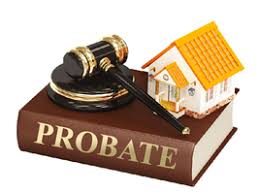Probate is a word used to describe the entire process of executing a person’s estate and passing away. Probate involves various steps including the recording of final administrative actions such as tax returns and bankruptcies, as well as notices and administrative action pertaining to real property acquisitions and property sales. Probate of wills occurs when one person dies and leaves an estate in the form of a will. There are many probate issues that can occur during probate including the preparation of a will or executing a will.
Many times one wants to prepare a will prior to their death so that their loved ones do not become immediately involved in probate proceedings. If one desires to appoint an executor or agent to handle the probate of their will, they must first obtain the proper forms from a probate lawyer. For more about this visit https://www.georgiaprobateattorneys.net.
Probate can take place in several different forms, including state court probate proceedings and federal probate proceedings. Most of these probate proceedings will end with the distribution of properties to beneficiaries. In many cases, the beneficiaries are people who are not dependent upon the deceased for anything, such as insurance policies or retirement accounts. State court probate proceedings commonly end with a court representative issuing a decision on the distribution of assets. For federal probate proceedings, the decisions are generally made by the U.S. government attorneys at the U.S. Tax Court.
There are many things to consider when going through the probate proceedings. First, it is necessary to determine where one’s final will is written. This is the legal document that establishes the final disposition of the decedent’s property and assets. In the case of a will that is probated, this document must be executed and filed along with the appropriate forms from the Probate Court. If the will does not exist, then filing a probate petition is necessary.
Once the probate proceedings have been completed, the court representative will distribute the deceased person’s properties and assets to the named beneficiary. In most cases, this beneficiary is also the person who wrote the Will. It is important to make sure that this person is the beneficiary of all property and assets. If this is not the case, a power of attorney might be needed to specify a beneficiary for the estate. A Power of Attorney must be in writing and provide instructions as to how the property and assets would be transferred should the need arise.
The probate attorney will help his or her client to draft a Will. This process is not too complicated, but there are a number of questions that must be answered. For example, the Will must specifically name the person (or persons) who will be allowed to make decisions on behalf of the decedent, while providing instructions for how those decisions should be made.  Also, the Will must describe who should be considered as a beneficiary if the decedent has no children. If the Will does not specify how the probate attorney will handle the distribution of the assets, then the attorney may consider making arrangements with other family members or with any other third party.
Also, the Will must describe who should be considered as a beneficiary if the decedent has no children. If the Will does not specify how the probate attorney will handle the distribution of the assets, then the attorney may consider making arrangements with other family members or with any other third party.
Once the probate is complete, the court will issue a final certificate of death. The certificate of death is then distributed by the probate court between the estate, the heirs, and anyone else specified on the Will. Estate planning services can be retained to assist the next of kin in the process of accepting, transferring, and paying the estate taxes. Estate planning can also be provided to help the beneficiary of the estate to avoid probate taxation.
 The last and most common method of dealing with probate is to make an offer to the decedent. If the judge agrees, he will issue an order allowing one of the heirs to purchase the probated estate for an offering price. The proceeds from the offer can be used to pay off debts, buy back the home, settle inheritance taxes or other debts that the decedent may have. This offer is not as legally binding as the choice of a trust, but it is still used frequently. The best thing to do if one has a loved one dying is to make an arrangement to ensure that they are properly cared for after their passing. It is always better to be sure of this than to leave your loved one unpaid or to put his or her assets in the hands of someone else who will never take care of them.
The last and most common method of dealing with probate is to make an offer to the decedent. If the judge agrees, he will issue an order allowing one of the heirs to purchase the probated estate for an offering price. The proceeds from the offer can be used to pay off debts, buy back the home, settle inheritance taxes or other debts that the decedent may have. This offer is not as legally binding as the choice of a trust, but it is still used frequently. The best thing to do if one has a loved one dying is to make an arrangement to ensure that they are properly cared for after their passing. It is always better to be sure of this than to leave your loved one unpaid or to put his or her assets in the hands of someone else who will never take care of them.